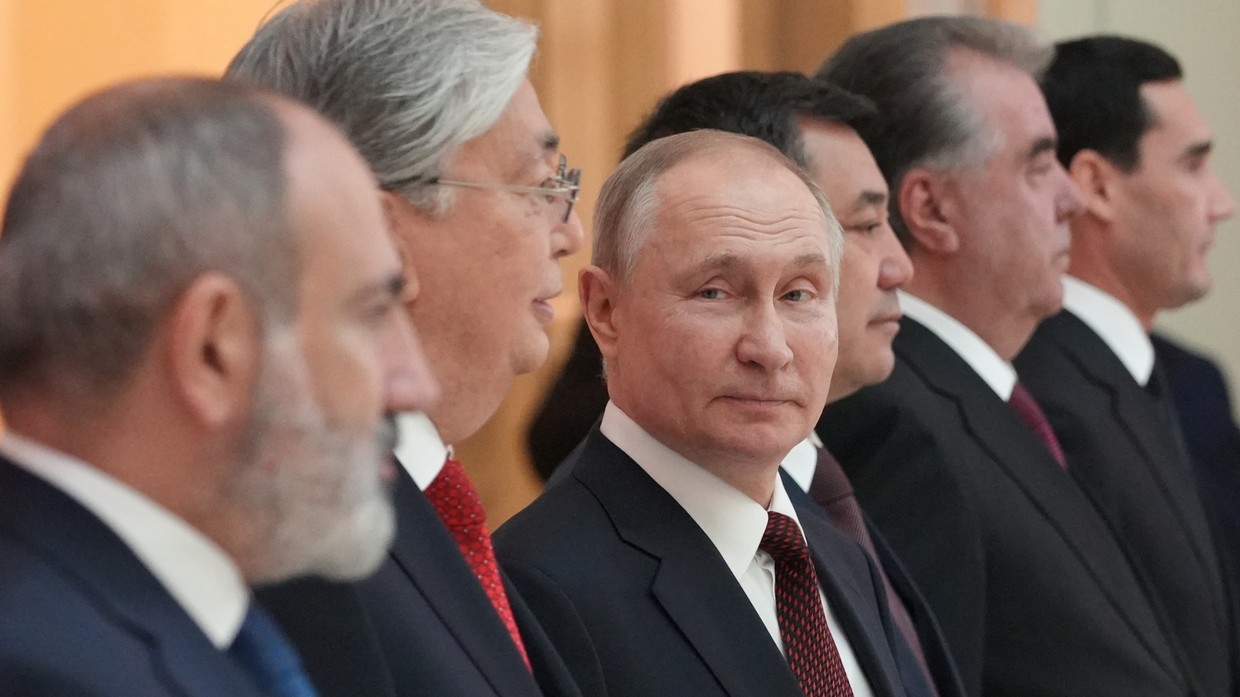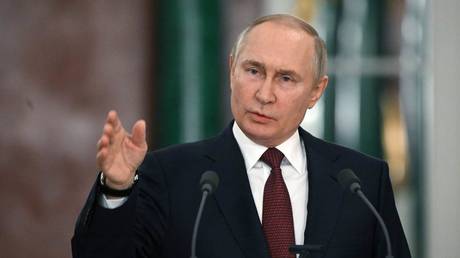Post-Soviet republics face an increasing number of external threats to their security, Russian President Vladimir Putin has stated.
Speaking at a traditional informal summit of the leaders of the Commonwealth of Independent States (CIS) in St. Petersburg on Monday, Putin stressed that while regional actors sometimes have different opinions, they are ready to cooperate to resolve any disputes.
The Russian president noted that the “friendly circle” is a testament to CIS members’ readiness to cooperate “in the spirit of true strategic partnership, mutual benefit and respect for the interests of all countries.”
Putin highlighted the role the CIS is playing in supporting regional security and stability. “Unfortunately, challenges and threats in this area, coming primarily from outside, are growing every year,” he said. Against this backdrop, he added that CIS intelligence agencies and other security institutions have been engaged in “close contacts.”
Putin did admit that CIS members sometimes find themselves at loggerheads. “The main thing, however, is that we are ready and willing to cooperate. Even if any problematic issues arise, we strive to solve them on our own, together, while providing each other with comradely assistance and mediation,” he added.
According to the Russian leader, deepening cooperation between CIS members is “in line with the fundamental interests of the peoples of our countries,” as it helps in tackling social and economic problems while contributing to regional security.
Putin also pointed out that CIS members are tightly knit in cultural and historic terms, with the Russian language being “a powerful unifying force, bringing together our multinational states.”
The president’s remarks come after he accused the West of “devising scenarios for inciting new conflicts” in the post-Soviet space in a bid to pursue the “policy of dictate in all areas.” He cited the Ukraine conflict as an example of such efforts at a September meeting with the heads of CIS security agencies.
Formed after the dissolution of the Soviet Union and incorporating some of its former republics, the CIS promotes cooperation in economic, political, and military affairs. Apart from Putin, the summit was attended by the leaders of Azerbaijan, Armenia, Belarus, Kazakhstan, Kyrgyzstan, Tajikistan, Turkmenistan, and Uzbekistan.


